Intimidation, torture, abduction of relatives: Russia's persecution of Ukrainian journalists in occupied areas

Russia is acutely aware of the importance of the information aspect of modern warfare. One of the first things Russians do when they capture Ukrainian territories is to put up Russian markers and symbols. Combatting "undesirables" – a designation that includes Ukrainian activists, soldiers, volunteers and journalists – is an inextricable part of Russia’s tactics.
When travelling in territories liberated from Russian occupation – anywhere from Kyiv Oblast in the north to Kherson Oblast in the south – we have heard multiple times that the Russians always knew who to target. Sometimes they even had lists of people they wanted to "interview", as they put it.
According to the Institute of Mass Information (IMI), a Ukrainian NGO, the Russians have taken over or destroyed around 300 offices of local media outlets in Ukraine.
Many journalists working in the Russian-occupied territories have either been taken prisoner, or are in hiding, or have been forced to flee because of threats to their lives and wellbeing.
Our colleague, Ukrainska Pravda journalist Viktoriia Roshchyna, died in Russian captivity. Viktoriia went missing in early August 2023 while working on a story, likely when trying to cross the Russian border. Russia confirmed in April 2024 that she had been taken prisoner. Andrii Yusov, spokesman for Ukraine’s Defence Intelligence, said Viktoriia was due to be returned to Ukraine; her name was on a prisoner exchange list. As part of that process, she was to be initially transferred to Lefortovo Prison in Moscow. But Viktoriia never made it back. Russia continues to refuse to give her body back to Ukraine.
Russia has been persecuting Ukrainian journalists since 2014. More than 100 Ukrainian and foreign media workers have been held captive by Russia since then.
Some of them, such as Stanislav Aseyev, were brought back to Ukraine before the full-scale invasion. Others, like Nariman Dzhelyal, returned to Ukraine after it began. But some, like Oleksii Bessarabov, have remained in Russian captivity for nearly 10 years.
Ukrainska Pravda shares the stories of some of the journalists who ended up in Russian captivity – and remain there still.
"Dear Mum and Dad, I’m alive." Dmytro Khyliuk, UNIAN
Dmytro Khyliuk lived with his elderly parents in a two-storey house set in an orchard in Kozarovychi, a small, quiet village in Kyiv Oblast. On the third day of the full-scale invasion, Russians appeared in the village. First there were convoys of Russian military vehicles driving past, then Russian occupation forces started to dig trenches and take over people’s homes.
Dmytro had worked at UNIAN, an independent Ukrainian news agency, for over 10 years. Prior to the full-scale invasion he had reported on the ground, covering the most significant trials, including high-profile cases in the aftermath of the Revolution of Dignity concerning protests and demonstrations.
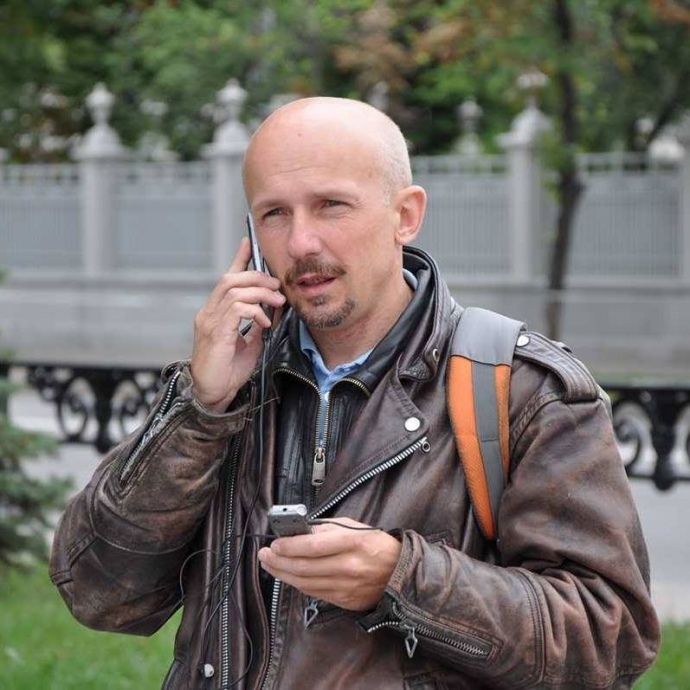
He rode his favourite motorbike to work nearly year-round. He used to say that it helped him beat the traffic, speeding up his 80-km (50-mile) round-trip to and from work. Dmytro’s father, Vasyl, recalls that Dmytro was still at school when he learned to ride a motorbike in the early 90s.
"I bought a bike in Kyiv, a Soviet model, with a sidecar. I got home in the morning and went to work. When I came back that evening, the bike was missing – and so was Dmytro. He’d managed to get it going, rode it around the village, ended up in a ditch and wrecked the sidecar. The next day, we got a bag full of coupons and went off to get a new sidecar," Vasyl recalls, smiling.
When Dmytro started working, he bought two motorbikes. The Russians stole both of them, and Russian soldiers were seen riding them on the outskirts of Kozarovychi – until they ran out of petrol. After the Russians fled, the bikes were found abandoned in a field, as was Dmytro’s father’s car, a Zaz Forza, which has remained in his garage, battered and graffiti-ed, for the past two years.
Dmytro’s mother Halyna had a stroke shortly before the full-scale invasion. Dmytro helped with her rehabilitation and did exercises with her to help her walk again. They were never able to complete the course, thanks to the Russians’ arrival. Halyna always says Dmytro was a "perfect child" and that he was their family’s rock.
"My neighbour often joked that the morning in Kozarovychi always started with the Khyliuks doing their exercises," Halyna says, a hint of irony in her voice. "He was our rock – we’re old now. My Vasyl is old. He [Dmytro] was our protector. Although recently he’d started smoking a lot; I used to tell him he was setting his dad a bad example."

The first time the Russians came to search their house was on 1 March 2022. They held Dmytro and his father at gunpoint and confiscated their phones, but found nothing suspicious in their home. Next day the family’s house was hit by a Grad shell which damaged a wall and shattered the windows. The Khyliuks had to spend the rest of the day in the freezing cold cellar, before going over to spend the night at their neighbour’s house.
"For the rest of my days I’ll remember how they put me in a wheelbarrow and took me from the cellar to our neighbour’s house. It was freezing in the cellar, and I couldn’t walk very well," Halyna recalls.
On 3 March, Dmytro and his dad went over to check on their house. Some Russian soldiers with vaguely Asian features, as Vasyl recalls, had moved in. They forced Dmytro and Vasyl to the ground, blindfolded them and took them to a makeshift prison. As activists from the Media Initiative for Human Rights (MIHR) subsequently found out, the prison was in a warehouse located in the village.
Later, on 8 March, Dmytro and his father were taken to the premises of a window business, Viknaland, in Dymer, a village near Kozarovychi. Here Vasyl was released. Dmytro was transferred to a prison and torture centre that the Russians had set up at the Hostomel airfield – and from there, likely via Belarus, to Detention Centre No. 2 in Novozybkov, in Russia’s Bryansk Oblast. The latest available information suggests that Dmytro is currently being held at Correctional Facility No. 7 in Pakino, a village in Russia’s Vladimir Oblast.
It’s still unclear whether the Russians knew Dmytro was a journalist when they detained him. MIHR found that prisoners were asked during interrogations about their work and acquaintances among the military. Dmytro’s father said that Dmytro was a teacher. However, MIHR says Dmytro told the Russians what he did and where he worked.
Dmytro’s colleague Tetiana Poliakovska visits his parents nearly every weekend. She says that after Kozarovychi was liberated, the Khyliuks’ house looked as though it had been rattled like a child’s toy: one wall was destroyed by a Grad shell, all the furniture inside had been ripped off its mounts, the beds had been overturned, and the family’s possessions lay scattered around on the floor. In the Khyliuks’ apple and pear orchard (Dmytro always used to give some of the fruit to his colleagues), the Russians had dug a caponier, a ditch for their tank, which they later dumped other people’s looted possessions in – anything from socks to home appliances – when they fled.
Vasyl recalls that while the Russians were in the village, the locals couldn’t leave their homes.
"One of the Russians was from Khabarovsk [in Russia’s Far East]. Think of the distance between here and Khabarovsk! He brought us water, passed it over the fence. He told us we had a ‘decent town’ [even though Kozarovychi is a village of around 1,800 residents – ed.] because the roads are paved and the houses have indoor toilets," he says.
Dmytro and his dad were held separately, so neither of them had any way of knowing what was happening to the other one.
"They were held in different locations, they didn’t see each other and had no information about one another," Tetiana recalls. "Vasyl was released [on 11 March – ed.], but he didn’t know what was happening to Dmytro. He got a letter dated from April in mid-August 2022. It was just a few lines."
The letter was only two sentences long: "Dear Mum and Dad, I’m alive and well. I’m alright. Dima."
A soldier who returned from Russian captivity on 31 May 2024 said he had shared a cell with Dmytro for nearly 11 months. He passed on greetings from Dmytro to his parents. The soldier spoke to Reporters Without Borders about the torture methods used by the Russians: they forced people to go out into the cold naked, set dogs on them and beat them. He said Dmytro had lost a lot of weight.
Dmytro has been due to be exchanged several times, but the agreements were broken at the last minute. Sadly, there is still no up-to-date information about Dmytro.
"He continued to write even from prison." Vladyslav Yesypenko, Crimea.Realities
Before Crimea was occupied, Vladyslav didn’t work as a journalist. He had to learn the profession on the job. Vlad is originally from Kryvyi Rih and used to run a property business. He proposed to his wife in Crimea, and in autumn 2013, the family moved to Sevastopol. Just six months later, the Russians began to occupy the peninsula.
Eventually, Vlad and his family decided to return to Kryvyi Rih rather than live under Russian occupation. But Vlad would go back to Crimea for work from time to time. He had his own video archive, which he offered to Ukrainian media outlets. However, as his wife recalled in a comment to Zmina, "the Ukrainian media wasn’t interested". So in 2016, Vlad started working with Krym.Realii (Crimea.Realities), a Radio Liberty project covering life on the occupied peninsula.
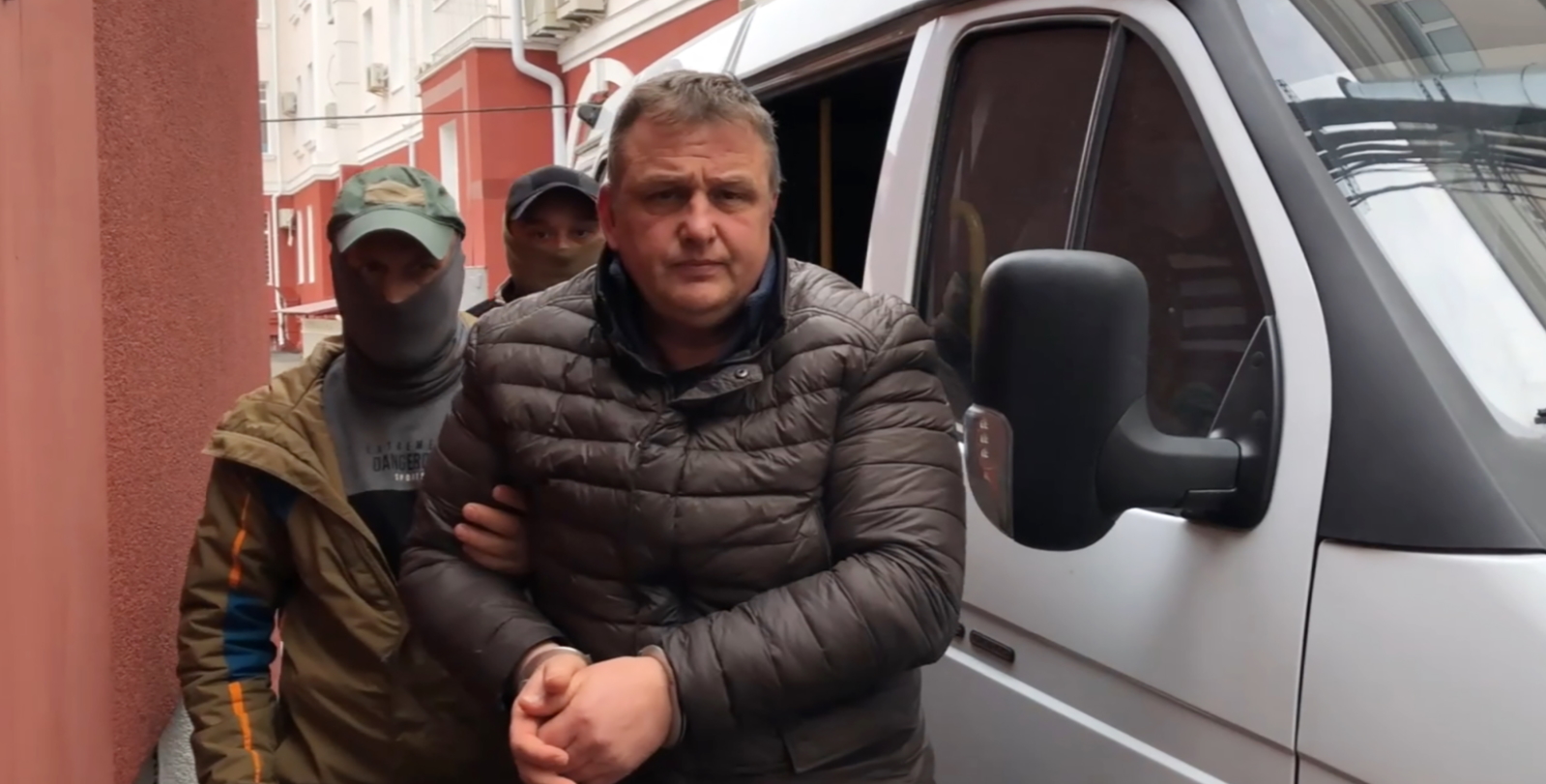
Editor-in-chief Volodymyr Prytula recalls that the editorial board had approached Vlad for stories.
"I don't know if it was his property or someone else's. Vlad used to say he was going to Crimea for 3-6 months and we could contact him. Our project needed him, as most of our correspondents had either left the peninsula or were being followed," Prytula says.
Vlad’s assignments were nothing out of the ordinary: making short videos for features on Crimean cities; making a video about the "elections" in occupied Simferopol; asking people what they thought about deforestation in Crimea, or whether they had tap water and what the quality was like. He had to film one of the branches of the North Crimean Canal when he was doing a story about drinking water on the peninsula.
"Vlad never filmed political events," Prytula recalls. "Usually it [his work] was about environmental issues or interviewing people on non-political topics, because he would have been immediately noticed and handed over to the FSB. In general, the environment and water were his areas of expertise."
Before each trip, the Krym.Realii editorial office would instruct its journalists on how to conduct themselves. In addition to Vlad, they worked with Taras Ibragimov and Oleksandra Yefymenko, but those journalists had a higher profile, so they were simply banned from entering the peninsula.
Vlad was initially accused of espionage and working for Ukrainian intelligence. When it was discovered that he was a journalist, he was charged with illegally handling explosives – a grenade, to be precise, which the Russians had planted in his car. They claimed he had planned to use it to defend himself against the Crimean Tatars.
Vlad was captured on the Angarsk Pass on 10 March 2021 as he was on his way back from filming in Simferopol with a friend he rented a room from in Yalta. The day before, 9 March, he had been filming people laying flowers at the city’s monument to the Ukrainian national poet Taras Shevchenko – an event attended by pro-Ukrainian activists. It was probably the first politically-related filming Vladyslav had ever done.
Prytula suggests that Vlad was seized because his friend was being followed. As a result, Vlad was tortured to extract a confession: he was beaten and had electric shocks applied to his body. During his trial, he recanted his testimony and demanded an investigation into his torture – unsurprisingly to no avail.
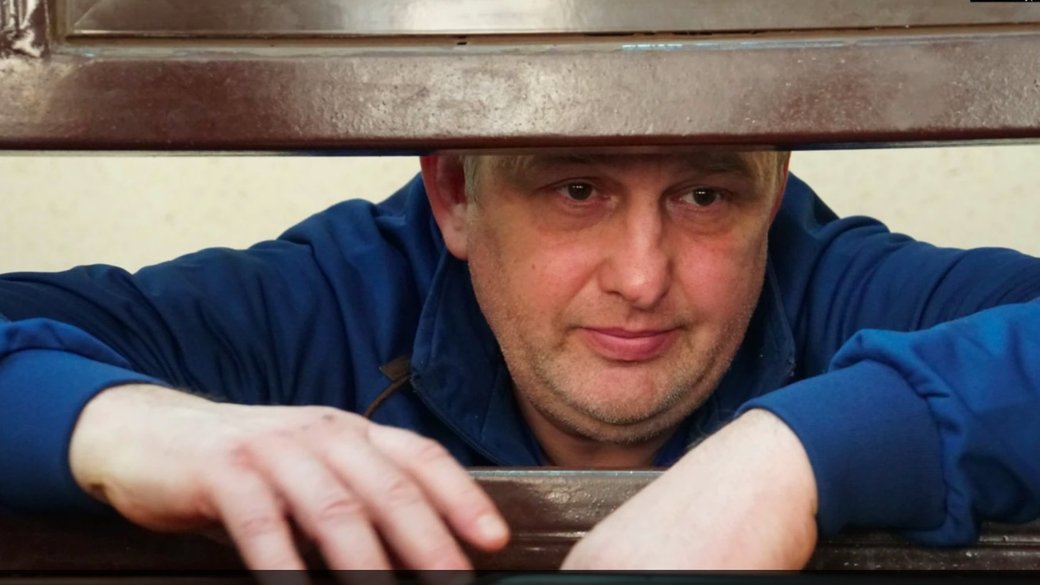
Prytula recalls that Vlad continued to work even from the pre-trial detention centre where he was held by the Russians. At first, he sent his diaries, in which he described how he was tortured and how FSB officers "had chats with him", demanding that he confess to crimes he hadn’t committed. Subsequently, however, the editorial board decided to remove these writings from public access in order to avoid harm to the journalist. But Vlad did not stop. It seems that his work was what enabled him to hold it together.
"He said there were some interesting people in the detention centre," Prytula told Ukrainska Pravda. "Like Kostiantyn Yermanov, an activist of the ‘Russian Spring’ [a series of pro-Russian actions, backed by the Russian secret services, that took place in Ukraine’s East and South in February-May 2014 – ed.] who ended up in the detention centre. Or Kostiantyn Shyrinh, a Ukrainian accused of espionage (he died in a Russian prison on 7 February 2023). Vlad would record interviews with them, then get the manuscripts to us in various ways, and we would edit and process them in Kyiv. Vlad kept on saying that he wanted to work. He had never studied journalism, but he really wanted to."
Radio Liberty's policy is to go public when their journalists are detained, Prytula adds. Of course, this is only done after the editorial board has consulted with lawyers and family members so as not to cause harm to the prisoner. Radio Liberty will then issue statements and hold press conferences, themed exhibitions and so on. The media outlet is convinced that the more publicity there is, the less likely it is that the person will be held in appalling conditions or killed.
Vlad is sorely missed by the editorial staff.
"We’ve lost a productive journalist," Prytula says. "He wanted to work. He was a quick learner. He did his job well. He was one of the last people making videos in Crimea. This is a loss for our audience, because first and foremost we work for Crimeans. Not to mention the fact that his family has been left without a father, and it’s horrifying to imagine what Vlad himself has been through."
In February 2022, the Russian occupation court sentenced Vlad to six years in a penal colony for possession and transportation of a grenade. He is currently in one of the penal colonies in occupied Kerch.
"For a year, the Russians did not admit that she was in captivity." Anastasiia Hlukhovska
As soon as they entered the occupied territories, the Russians would immediately begin to take control of all means of communication. They acted pretty much like the Bolsheviks – railway station, telephone, telegraph – with the telegraph replaced by the internet, and the telephone by mobile phone masts. Plus the media.
The Russians, well aware of the importance of local media, would suggest that media outlets cooperate with them. If they refused, they could face consequences. One such journalist was Svitlana Zalizetska, editor of the regional news agency RIA Melitopol. The occupiers initially summoned her for an interview.
Zalizetska told Suspilne she decided to leave Melitopol that same day, using forged documents. As she was leaving occupied territory, the Russians seized her father. They effectively held him hostage.
"They demanded that I return to the city in exchange for my father's release," Zalizetska said. "When I said I wouldn’t, they demanded the passwords to my website and social media. I explained that I had handed all access over to other people. Eventually they said I had to make a public statement that I had nothing to do with RIA Melitopol. It was only after I said this that my father was released."
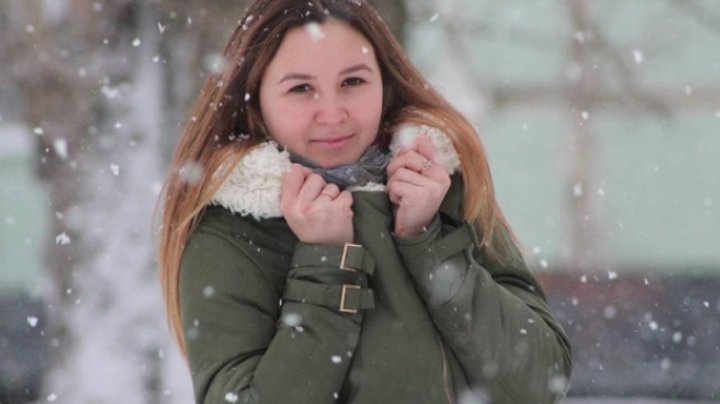
But that was only the beginning. Later, the Russians started effectively hunting down those who had stayed in the occupied city. Anastasiia Hlukhovska is a journalist who worked for RIA Melitopol. She mostly wrote on social issues, but when the full-scale invasion began, she decided to stop working. As her sister, Diana Fomenko, explains, the risks were obvious.
"I was in Kyiv on the first day of the invasion, but Nastia and my relatives were in occupied territory," Diana told Ukrainska Pravda. "We tried to keep in touch as long as we could. When Melitopol was occupied, everyone was frightened. It was clear that Nastia could not work as a journalist. Since 2014, we have seen from the examples of occupied Donetsk, Luhansk and Crimea that journalism is one of the most dangerous jobs you can do in such conditions. There was no question of Nastia writing anything. We ended up not even talking about her work on the phone – there’s always a risk that the Russians might be listening."
But even though Anastasiia was not working, the Russians had still noticed her. And on the night of 19-20 August 2023, they seized her. Other people associated with journalism – mostly administrators of pro-Ukrainian Telegram channels – were taken captive by the Russians in addition to Nastia.
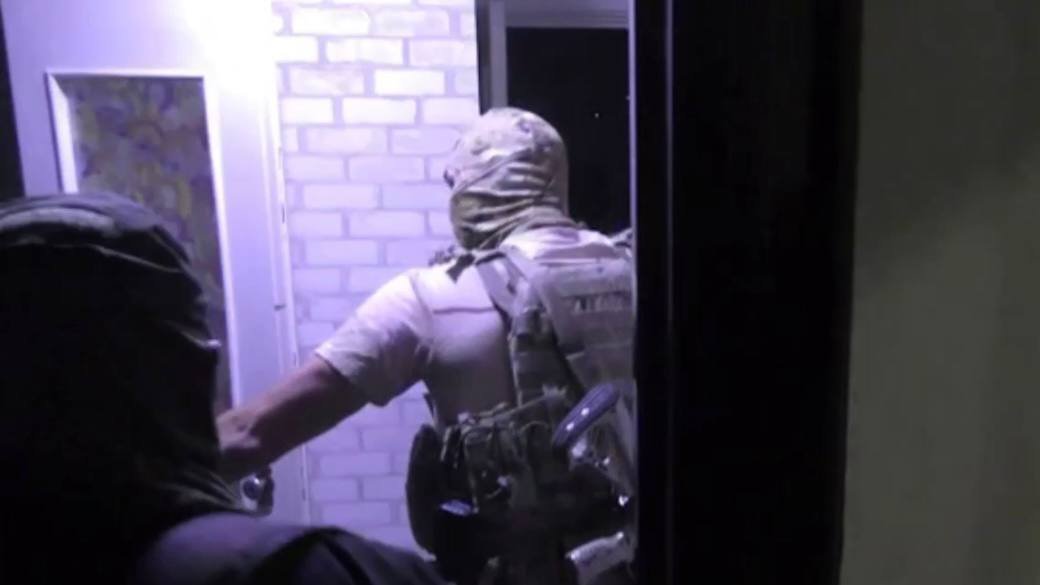
A few months later, the Russians would announce that they had discovered a "Defence Intelligence of Ukraine network". Videos of the arrests were even shown on Kremlin propaganda media outlets such as the Russia 1 TV channel.
On the night of 19-20 August, Anastasiia was taken to a warehouse in Melitopol. She was held there for some time, presumably in the basement, and later transferred to a warehouse with a makeshift cell for women. It is not known whether Anastasiia was ever charged with any crime, or where she is now.
"Anastasiia’s mother was told that she was not being held captive," Zalizetska recounts. "However, nearly a year later, they finally admitted that she had been detained. At the same time, footage of her arrest was broadcast on Russian national TV, showing her being led out of her home and put into a car. The latest information we have indicates that Nastia was transferred from Melitopol to Detention Centre No. 2 in Taganrog [in Russia]. From there, she was moved somewhere else. We don’t know where, or when it happened."
Zalizetska suggests that the Russians may have detained Nastia because her name featured in contact lists on the mobile phones of people who had already been arrested. In total, about ten people were apprehended during that time.
"I remember when Nastia went missing," Diana says. "I woke up around 09:00 that day. I knew my mum was going round to my sister’s. Around 10:00, I texted Nastia to see how she was and whether Mum had arrived. But there was no reply. Later, her boyfriend called me, or texted me – it’s all a bit blurry now, it was so long ago. He said, 'Nastia’s gone.' No other details."
It was terrifying, Diana recalls. The family realised that Anastasiia had been abducted by the occupation authorities, but no one knew exactly who had done it, where she had been taken, or what was happening to her. Diana contacted Ukraine’s Security Service and the police the day after the arrest. Over a year has passed since her sister was abducted, and Diana still does not know where she is. Most of the information she has about Nastia is from the news.
As well as Anastasiia, the Russians also detained two other journalists from RIA Melitopol in 2023: Heorhii Levchenko, a Telegram channel administrator, and former journalist Iryna Levchenko [no relation – ed.], who had already retired when she was detained by the occupation authorities.
The Russians almost immediately acknowledged Heorhii’s arrest, even accusing him of "terrorism". Zalizetska says this was because he had been writing about life under the occupation, with tanks on the streets and people being detained. Iryna was detained together with her husband on 6 May 2023. He was released a year later, but the former journalist remains in captivity.
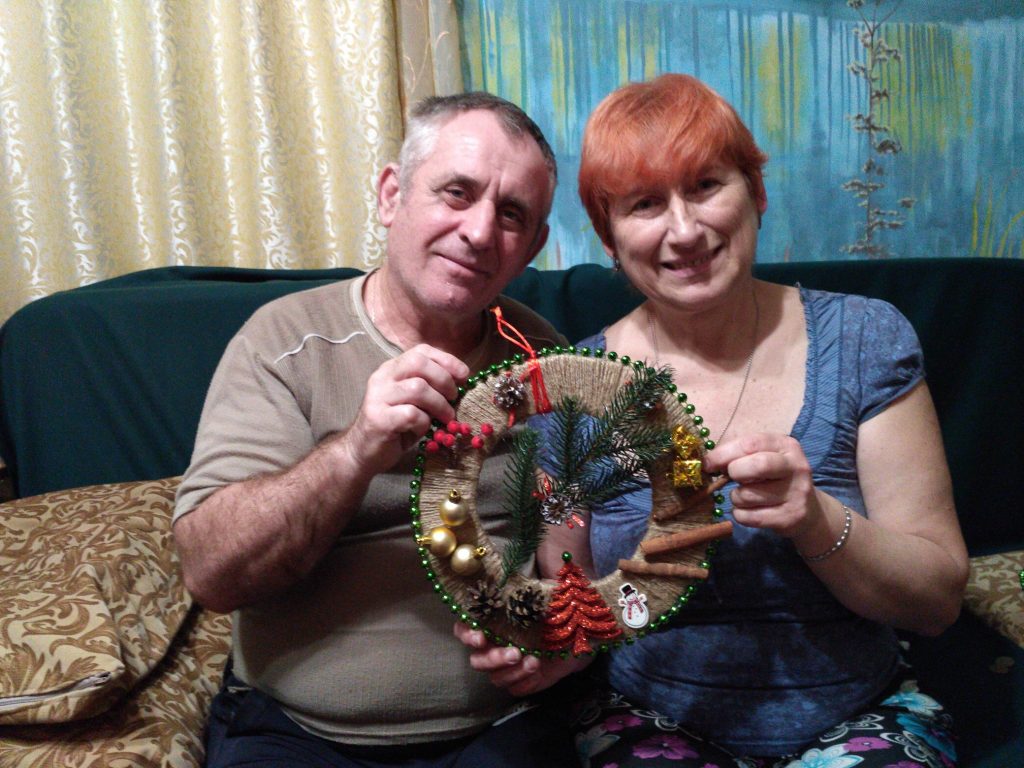
No way back
The biggest problem for journalists in prison, and indeed for all civilians taken prisoner by the Russians, is the lack of any mechanism for prisoner swaps. International humanitarian law specifically prohibits the capture and detention of civilians. But that doesn’t stop the Russians. They have been doing this since 2014 – since the occupation of Crimea began, in fact.
Every exchange of civilian hostages – or rather civilian prisoners, although international law does not recognise such a term – has been accompanied by individual agreements. Before the full-scale war, a few journalists were successfully brought back from Russian captivity, among them Stanislav Aseyev, Volodymyr Fomichov, Mariia Varfolomieieva and Roman Sushchenko.
Since the beginning of the full-scale invasion, only one journalist has been brought home – Nariman Dzhelyal, who was also Deputy Head of the Mejlis (Assembly) of the Crimean Tatar People. Incidentally, the Russians "tried" him in occupied Crimea, accusing him of attempting to sabotage a gas pipeline. He ended up in a Russian prison and was only able to return to Ukraine in the summer of 2024.
Another journalist who has been freed is Maksym Butkevych, although he was captured by the Russians as a soldier.
Viktoriia Roshchyna, who was due to be exchanged in a prisoner swap in September 2024, was killed.
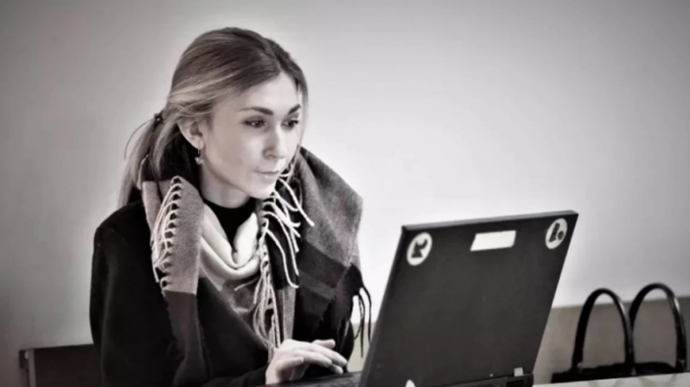
"Since the war started in 2014, at least 100 journalists have been held hostage by Russia, with 30 still in captivity today," Hanna Chabarai, Deputy Director of the Institute of Mass Information, explains. "All of them are civilians, and the detention of civilians is prohibited by international humanitarian law. Not to mention that Russia unlawfully sentences them to lengthy prison terms on entirely trumped-up charges.
For instance, citizen journalists from Crimean Solidarity [a human rights organisation established in Crimea in 2016 – ed.] have been accused of terrorism by Russia and sentenced to 12-19 years in prison. There is evidence that captive journalists are subjected to torture and abuse and are denied medical assistance."
Nataliia Vyhovska, a representative of the IMI in Zaporizhzhia Oblast who has studied the effects of the occupation on local media, added that the biggest wave of persecution against journalists occurred at the start of the full-scale invasion. She said the Russians attempted to persuade local media outlets in the cities of Enerhodar, Tokmak, Melitopol and Berdiansk to collaborate. Most journalists refused. This was followed by repression and persecution.
"The most notable examples involve visits to journalists in Melitopol. For instance, journalists from MV Media, Mykhailo Kumok, head of the MV Plus holding, and his daughter, and journalists including Yevheniia Boryan were taken to an unknown location. The Russians did this in an attempt to force them into collaborating," Vyhovska explained.
According to Vyhovska, most local media outlets managed to shut down and leave in time. But the Russians persist in their attempts to persuade journalists to cooperate. Announcements occasionally appear on local Telegram channels offering the opportunity to "repent". Vyhovska says this is how the Russians attempt to identify media professionals who remain disloyal to the local authorities and persuade them to collaborate. Despite launching their own propaganda media outlets based on the editorial offices they seized, the Russians have a shortage of suitable staff.
This tactic is not new – it was a similar story in Crimea in 2014. After the so-called referendum, the Russians began to seek out disloyal media professionals, aiming to force them to either stop working or collaborate with them.

Krym.Realii director Volodymyr Prytula recalls that since 2014, around 80 journalists have ceased working with the project. Half of them quit for various reasons: some openly admitted they were being threatened, or pressured through their businesses, or that they or members of their families had been summoned to "interviews". Others stopped working with no explanation.
These people either moved to local media outlets or left the profession entirely. The other half left the occupied peninsula. Some moved abroad, some now work for national media outlets, and others are fighting on the front line.
After 2022, Prytula says, working on the peninsula became impossible: Radio Liberty was declared an "undesirable organisation". In practice, anyone who works with them or provides them with comments risks criminal prosecution by the Russians.
"The scariest time was in 2014, when text messages started coming in. A colleague once texted me: 'The FSB are at my door. What should I do?' It’s terrifying. Or when you hear that your colleagues’ homes are being searched. And you can’t help them – apart from giving them contact details for lawyers. I wouldn’t wish this on any editor: experiencing the moment when your journalists are detained," Prytula says.
To bring our fellow journalists back from Russian prisons, our only hope now is international pressure. On 2 October 2024, the Parliamentary Assembly of the Council of Europe (PACE) adopted a resolution entitled "Missing persons, prisoners of war and civilians in captivity as a result of the war of aggression of the Russian Federation against Ukraine".
For the first time, this resolution includes a specific mention of journalists in captivity. We hope this will expedite our colleagues’ release.
***
Thirty journalists have been held in Russian captivity since the onset of the full-scale invasion. The complete list can be found here.
In addition, since the invasion began, 93 journalists have been killed by the Russians. Twelve of them died while performing their duties, while the others lost their lives on the battlefield or as a result of Russian strikes or torture. The full list is available here.
Stas Kozliuk, for Ukrainska Pravda
Ukrainian editor: Yevhen Buderatskyi
Translation: Olya Loza, Yelyzaveta Khodatska, Anastasiia Yankina
Editing: Teresa Pearce
